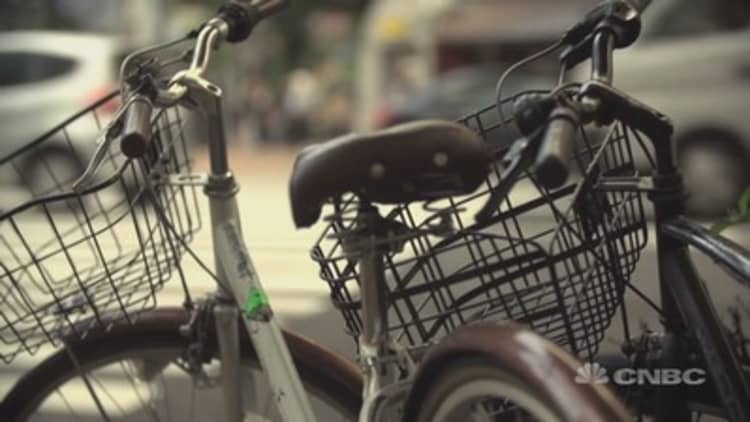
Compared to cars, bikes are cheap, quiet and can be used by young and old alike. From London to New York, cities across the world are implementing a range of schemes to get people out of their cars and on their bikes. But how does a city cope with all these new cyclists?
Amsterdam has a long history of cycle schemes, with city authorities saying that 63 percent of the population use their bike daily. It's estimated that there are 800,000 bikes in Amsterdam, compared to 263,000 cars.
But while getting people to change from four wheels to two has its health and environmental advantages, many cities are struggling to keep up with the increasing number of cyclists on the road. As well as keeping cyclists safe from other traffic, finding space to neatly store bikes is another challenge.
In Tokyo, one company, Giken, has come up with an innovative way to keep bikes safe and secure: by storing them underground. The Eco-cycle is described by Giken as an "anti-seismic underground bicycle park."
"In many cities, the majority of bicycles are parked on the street or in parking facilities above ground – this distracts from the city's beauty and puts traffic flow additionally in dense urban areas," Giken's Tsunenobu Nozaki told CNBC's Sustainable Energy.
"Land should be used more effectively, so that more space is available for business, commercial and leisure above ground," Nozaki added. "This can be achieved by converting parking facilities underground – we call this concept 'culture above ground and function underground'."
Users of the system place their bike in front of the Eco-cycle's door. A tag on the front of the bike is read by a sensor, the bike's front wheel is fixed with a clamp, the door opens and the bike is taken down to a vacant space. Users can collect their bike by using a smart card, which tells the system that they are waiting.
The process takes 15 seconds and costs around $1.25 per day.
Nozaki went on to say that, "we are receiving many more enquiries from people who have become aware of the Eco-cycle concept."




